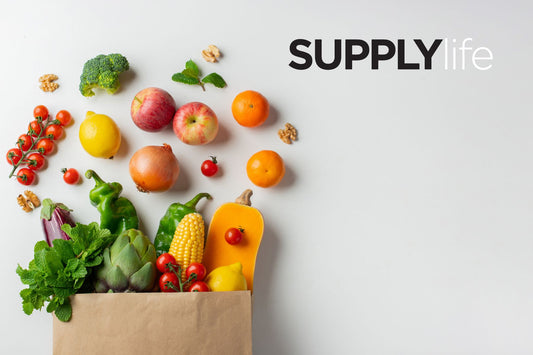Uncovering a food intolerance can be a difficult journey, not just physically but emotionally. It's especially tough if the food in question is something you've always loved and enjoyed for years. For partners, watching your loved one struggle through this adjustment can leave you feeling helpless. However, you can provide help in many ways and make this transition easier for them. Here at Supply Life, we have compiled a list of tips and techniques to support your spouse.
Understanding the Emotional Journey
Recognise that accepting a food intolerance can be a process similar to grieving. Your partner might go through stages of denial, anger, bargaining and then acceptance. It is also important to be a patient listener. Sometimes, being there to hear their thoughts can make a huge difference.
Educate Yourself on Their Health
Take the time to learn about their specific intolerance. By doing so, you will show your partner that you are committed to understanding their specific situation. Having knowledge about the intolerance will also help you avoid accidentally serving foods that could activate discomfort.
Adapt the Kitchen
Consider making your kitchen a safe space by eliminating or reducing the presence of the foods your partner is sensitive to. If completely removing the food isn't doable, select specific areas or containers to avoid cross-contamination.
Explore New Recipes Together
Turn the challenge into an opportunity by exploring new recipes that cater to their dietary needs. Cooking together can also be a fun bonding experience!
Offering Emotional Support
Acknowledge their feelings about missing certain foods - empathy goes a long way! Encourage them by focusing on the positive aspects, such as improved health and discovering new favourite foods.
Navigating Social Situations
Be their advocate in social environments. Help communicate their dietary needs to friends and family to avoid awkward or uncomfortable situations. Always suggest restaurants that cater to their nutritional requirements when dining out.
Creating New Traditions
If certain traditions involve the intolerant food, get creative and start new ones. This could be an opportunity to explore different cuisines or start a tradition of cooking a special, intolerance-friendly meal together.
Be Encouraging and Positive!
Celebrate small victories, like a successful recipe modification or a week without symptoms. And always stay cheery about the situation - your optimism can be contagious!






